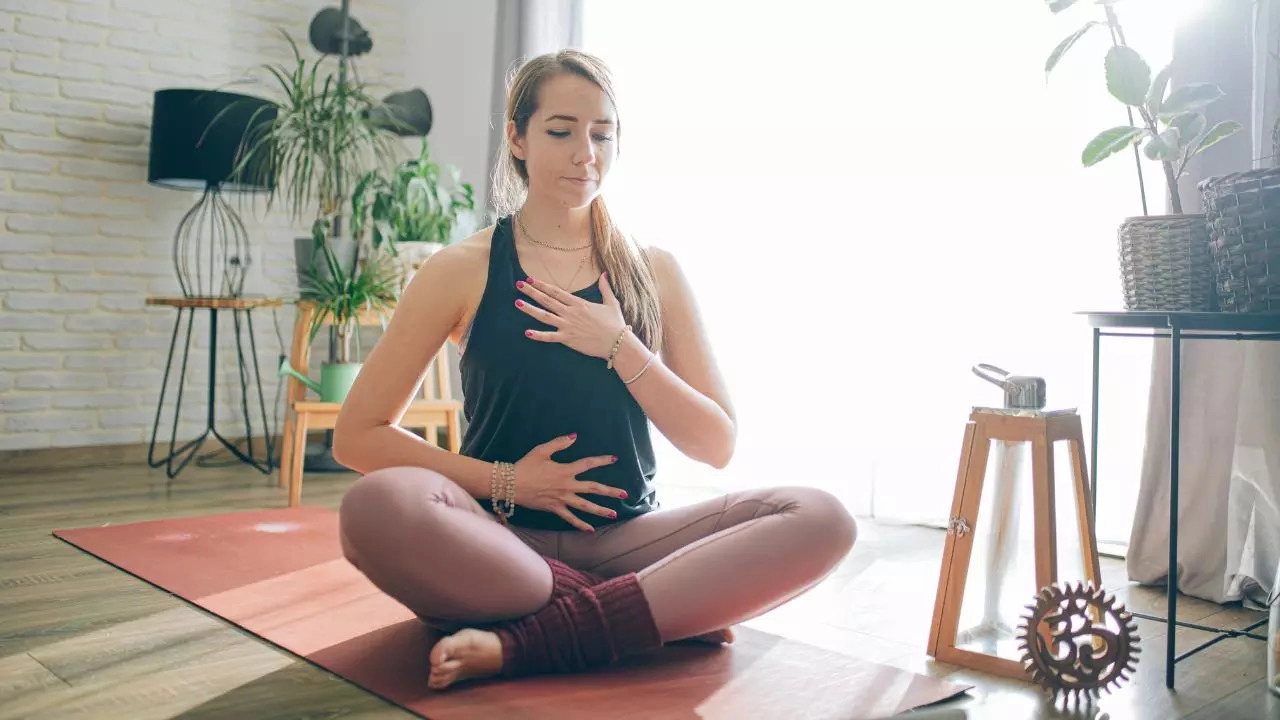What Is The Diaphragmatic Breathing Exercise That Can Help With Anxiety?
Oct 10, 2024
News

Know What Is The Diaphragmatic Breathing Exercise That Helps With Anxiety
Anxiety disorder is a condition wherein you have intense, excessive and persistent worry and fear about everyday situations. People who have anxiety disorders have repeated episodes of sudden feelings of intense anxiety and fear or terror that reach a peak within minutes which is also known as panic attacks. This feeling of anxiety and panic can affect your ability to perform daily activities. It can also be difficult to control, out of proportion to the actual danger and can last for a long time. In such a situation, one tends to avoid places or certain situations to prevent these feelings.
There are several ways to ease your anxiety, one of them is the diaphragmatic breathing exercise. In this process, you use the diaphragm to take deep breaths. When you breathe normally, you don’t use your lungs to their full capacity. Diaphragmatic breathing allows you to use your lungs at 100% capacity to increase the efficiency of the lungs.
How To Perform The Breathing Exercise?
To practice this breathing technique, start by sitting or lying down in a place comfortably. Then, place one hand on your chest and one just below your ribcage on your abdomen.
Slowly breathe in through your nose, feeling the air move down to your abdomen.
Your belly will expand and push outwards but your chest should stay still.
Then, purse your lips and exhale slowly for a few seconds.
You can repeat this cycle for better results.
Benefits Of The Diaphragmatic Breathing Exercise
Activates the Parasympathetic Nervous System
Diaphragmatic breathing helps to activate the parasympathetic nervous system. This helps to counteract the ‘fight or flight’ response that is triggered by anxiety, thereby, helping in relaxation and calming the body.
Lowers Heart Rate
Slow and deep breaths help to lower heart rate which usually increases during anxiety. By slowing the heart rate, diaphragmatic breathing helps to reduce physical symptoms of anxiety, such as palpitations and breathlessness.
Reduces Stress Hormones
Deep breathing reduces the release of cortisol which is the body’s primary stress hormone. Lower cortisol levels help the body manage stress effectively and reduce the overwhelming sensations caused by anxiety.
Improves Focus and Mindfulness
When you focus on your breath, it helps to keep away your attention from anxious thoughts and worries. It helps in mindfulness, thereby, helping you stay in the present moment and reducing the racing thoughts linked with anxiety.
Improves Oxygen Flow
Diaphragmatic breathing increases oxygen intake which improves blood flow and delivers more oxygen to the brain. This helps you to think clearly, helping to keep away anxious thoughts and improve mental clarity.
Relieves Muscle Tension
Anxiety often causes muscle tension, especially in the neck, shoulders and chest. Deep breathing exercises like this can help to release this tension, thereby, promoting a sense of physical relaxation and easing the discomfort caused by anxiety.
Regulates Breathing Patterns
Anxiety can cause shallow and rapid breathing which might lead to hyperventilation. Diaphragmatic breathing helps to regulate breathing patterns, thereby, making each breath deeper and slower, which reduces the feeling of breathlessness.
Get Latest News Live on Times Now along with Breaking News and Top Headlines from Mental Health, Health and around the world.



